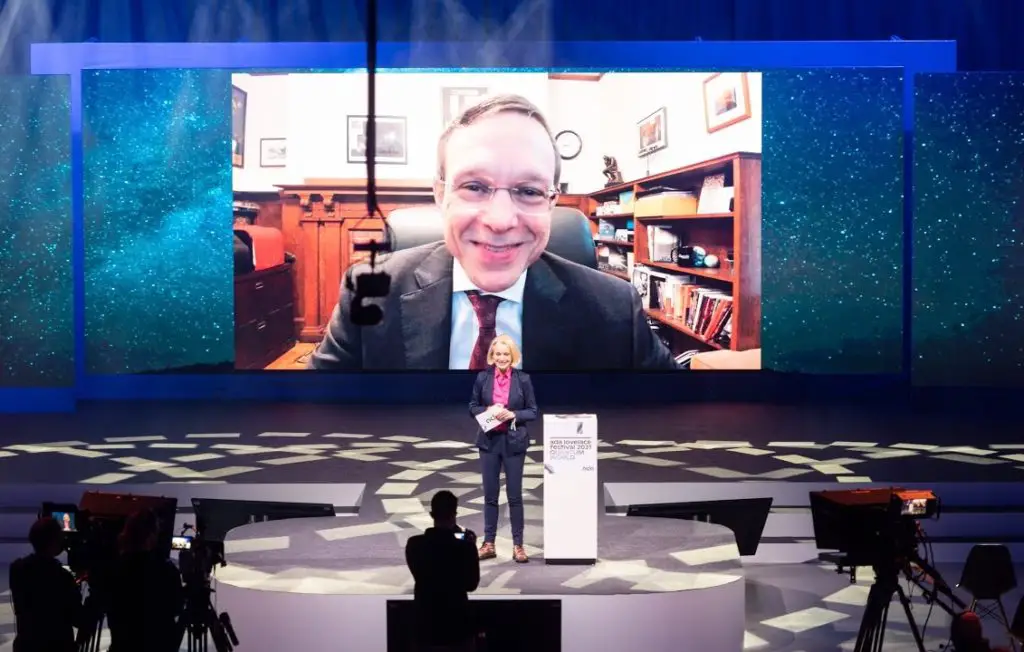

In a recent round-table conversation with Neil deGrasse Tyson and Elizabeth Vargas, Avi Loeb stood out as the antithesis to armchair science theorists. The Harvard Professor and Chair of Astronomy believes that talking about science isn’t enough; one needs to “walk the talk” by actively participating in data collection and analysis.
While deGrasse Tyson cautioned against the reliability of eyewitness accounts as scientific evidence, Loeb actively engages in fieldwork that takes him to extraordinary lengths. He isn’t just theorizing about cosmic bodies and potential life beyond our planet; he’s out there looking for tangible evidence. In one ambitious project, Loeb led a team to sift through the depths of the Pacific Ocean, hoping to find materials that might have originated from outside our solar system.
Loeb challenges the notion that we must wait for government-released evidence to advance our understanding of phenomena like UFOs or extraterrestrial material. According to him, the oceans are not classified; hence, they serve as a more democratic ground for scientific exploration. He believes the answers we seek might be buried not in classified government documents but possibly under miles of ocean water.
Avi Loeb’s approach also raises questions about the role skepticism plays in scientific progress. While deGrasse Tyson represents a cautionary perspective, urging for “better data,” Loeb calls for more open-minded exploration. He points out that skepticism should not become a barrier to seeking empirical evidence. There is a difference, he argues, between being scientifically rigorous and being dismissive of groundbreaking avenues of study.
Loeb laments that some scientists have become too cautious, even stalling the wheels of progress. The passionate astronomer advocates for a return to the golden age of scientific discovery, an era marked by audacious explorations and path-breaking findings. He challenges the scientific community to not just speak about the colossal implications of discovering life beyond Earth, but to actively seek out that evidence.
For those intrigued by Loeb’s unconventional approach to scientific discovery, there’s good news. He has a new book in the pipeline that delves into these very topics, discussing the significance of potential discoveries and their transformative impact on humanity.
In a world where scientific discourse often takes place in conference rooms and on social media platforms, Avi Loeb serves as a poignant reminder of what scientific adventure used to be—and can still be. His efforts to merge discourse with action lay down a formidable challenge to both scientists and skeptics alike: Stop just talking about finding evidence and start actively looking for it.
So, whether it’s combing through the ocean depths for cosmic relics or pushing the boundaries of mainstream scientific thought, Avi Loeb is more than just a theorist. He is an adventurer at heart, aiming to take the scientific community along on a journey to uncharted territories.
Stanford professor Dr. Garry Nolan explores UFOs, anomalous materials, and mysterious health effects linked to… Read More
Paul Hynek meets a woman claiming she nannied alien hybrid babies—an understated yet unforgettable UFO… Read More
For decades, Steven Spielberg has been at the forefront of bringing extraterrestrial stories to the… Read More
Is the Moon a hollow alien base? Explore suppressed astronaut stories, lunar secrets, and why… Read More
UFO sightings are just the tip of the iceberg—400,000 humanoid races exist. Discover why they… Read More
“‘They’re never giving this up’: Knapp & Corbell unpack Pentagon lies, whistleblowers & the future… Read More
This website uses cookies.